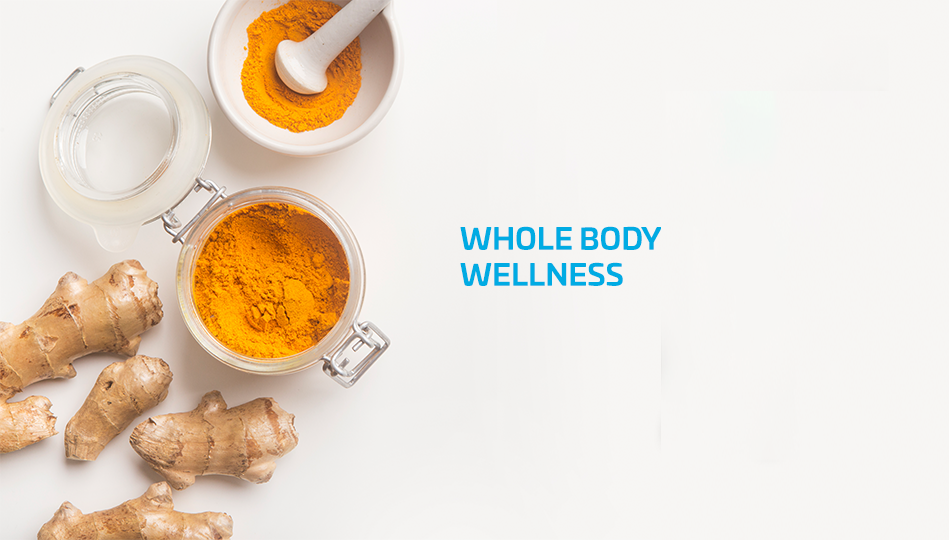In the pursuit of wellness, we often seek out superfoods and supplements that promise to enhance our health and vitality. Among these, curcumin stands out as a shining star, revered for its remarkable properties and centuries-old history of use in traditional medicine. Derived from turmeric, a spice commonly found in curry dishes, curcumin has captured the attention of researchers and health enthusiasts alike for its potential to promote overall well-being. Let's delve into the world of curcumin and uncover the promise it holds as a daily nutrient for optimal health.
The Power of Curcumin: A Natural Wonder
Curcumin is a bioactive compound found in turmeric, known scientifically as Curcuma longa. It is responsible for the vibrant yellow color of turmeric and possesses potent antioxidant and anti-inflammatory properties. These properties are believed to be the driving force behind curcumin's wide range of potential health benefits.
Supporting Inflammation Management:
Chronic inflammation is increasingly recognized as a root cause of many diseases, including heart disease, cancer, and neurodegenerative conditions. Curcumin has been shown to modulate inflammatory pathways in the body, potentially reducing the risk of chronic inflammation and its associated health consequences.
Promoting Joint Health:
For those seeking relief from joint discomfort, curcumin may offer a natural solution. Studies have suggested that curcumin's anti-inflammatory properties could help alleviate symptoms of conditions like osteoarthritis and rheumatoid arthritis, supporting joint health and mobility.
Enhancing Cognitive Function:
The brain benefits from curcumin's neuroprotective properties, which may help preserve cognitive function and support overall brain health. Research indicates that curcumin may promote the production of brain-derived neurotrophic factor (BDNF), a protein involved in brain function and neuroplasticity.
Protecting Cardiovascular Health:
Heart health is another area where curcumin shows promise. By combating oxidative stress and inflammation, curcumin may help support cardiovascular function and reduce the risk of heart disease. Additionally, curcumin may contribute to healthy cholesterol levels and promote optimal blood vessel function.
Aiding Digestive Wellness:
Curcumin's anti-inflammatory and antioxidant properties extend to the digestive system, where it may help soothe gastrointestinal discomfort and support digestive health. Some research suggests that curcumin could benefit conditions like irritable bowel syndrome (IBS) and inflammatory bowel disease (IBD).
The Synergy of Curcumin and Bioavailability:
While curcumin holds tremendous potential for wellness, its bioavailability has long been a challenge. Fortunately, advancements in technology have led to the development of innovative formulations that enhance curcumin's absorption and efficacy. By pairing curcumin with compounds synergistic botanical extracts and incorporating it into nanoparticle delivery systems, bioavailability can be significantly improved, unlocking the full potential of this golden nutrient.
Incorporating Curcumin into Your Daily Routine:
With its diverse array of potential health benefits, curcumin is a valuable addition to any wellness regimen. Curcumin offers a natural and accessible way to support overall health and vitality.
Conclusion:
As we continue to explore the potential of natural remedies for health and wellness, curcumin stands out as a shining example of nature's healing power. With its potent antioxidant, anti-inflammatory, and neuroprotective properties, curcumin holds immense promise as a daily nutrient for promoting optimal health and well-being. By harnessing the synergy of curcumin and innovative delivery systems, we can unlock its full potential and embrace the golden benefits it has to offer.
Aggarwal, B. B., Yuan, W., Li, S., & Gupta, S. C. (2013). Curcumin-free turmeric exhibits anti-inflammatory and anticancer activities: Identification of novel components of turmeric. Molecular Nutrition & Food Research, 57(9), 1529–1542.
Hewlings, S. J., & Kalman, D. S. (2017). Curcumin: A Review of Its' Effects on Human Health. Foods, 6(10), 92.
Daily, J. W., Yang, M., & Park, S. (2016). Efficacy of Turmeric Extracts and Curcumin for Alleviating the Symptoms of Joint Arthritis: A Systematic Review and Meta-Analysis of Randomized Clinical Trials. Journal of Medicinal Food, 19(8), 717–729.
Rahmani, A. H., Alsahli, M. A., & Aly, S. M. (2018). Therapeutic Implications of Curcumin in the Prevention of Cognitive Disorders: An Overview. Nutrition Journal, 17(1), 1–10.
Sahebkar, A. (2013). A Systematic Review and Meta-Analysis of Randomized Controlled Trials Investigating the Effects of Curcumin on Blood Lipid Levels. Clinical Nutrition, 33(3), 406–414.
